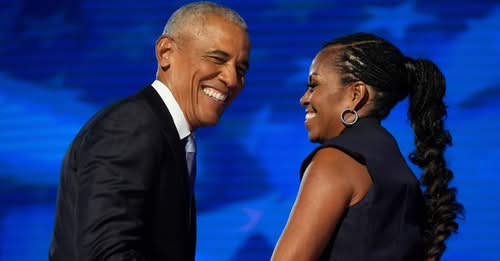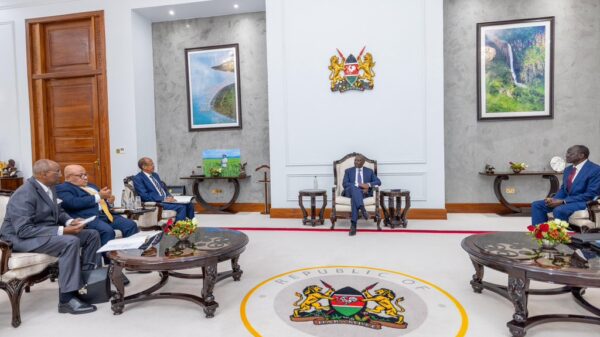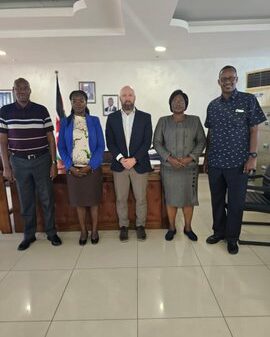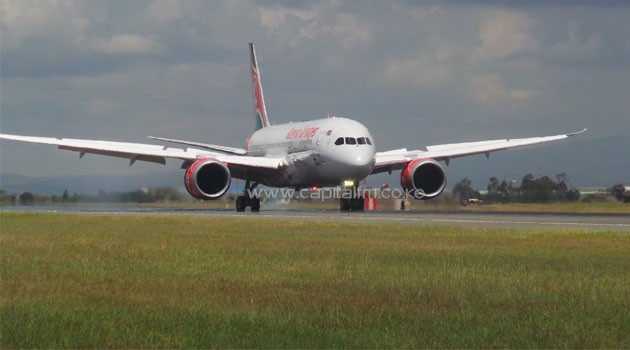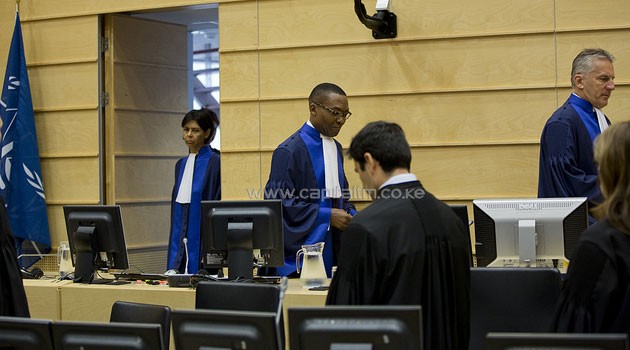
Presiding Judge Chile Eboe-Osuji noted on Wednesday that the court had heard too much unfounded information from witnesses who were reporting third party accounts/FILE
Presiding Judge Chile Eboe-Osuji noted on Wednesday that the court had heard too much unfounded information from witnesses who were reporting third party accounts.
This is after the defence teams of Deputy President William Ruto and former radio presenter Joshua arap Sang raised concerns about the testimony of the sixth witness who admitted to the court that he was regurgitating some of the things he had heard from other people.
Witness P0268 was narrating to the court statements that he was told by other people regarding what Sang allegedly said on his Kass FM Lene Emet show.
Judge Eboe-Osuji however said that the court had heard enough hearsay from this particular witness adding that the court would not encourage the same with future witnesses.
“We are concerned if a huge amount of hearsay coming in through a witness but in the end it is likely not to be relied on in the verdict of the case. With this particular witness, we are all agreed that have heard enough hearsay and we now want direct things that he observed,” said the judge.
“We do not want an open door policy of an endless stream of hearsay coming into this court.”
Ruto and Sang’s lawyers had also expressed concern over the inability of the sixth witness to remember specific details of a statement he wrote and gave to the International Criminal Court Prosecution, despite being taken through it a week ago.
Defence lawyers David Hooper (Ruto) and Katwa Kigen (Sang) said it was unfair for the prosecution to keep refreshing the witness’s memory by giving him the statement to read so as to recollect the specific details.
Hooper particularly accused the prosecution of attempting to wheedle out details from the witness, who seemed like he was struggling to remember them.
“It is a memory refreshing exercise that is being done after this statement has been gone through with a fine toothed comb as witnessed by the several pages of addendums that we received as a result of this witness carefully picking his way through that statement in the course of preparation last week and making numerous corrections to details,” argued Hooper on Wednesday.
Kigen, whose client was adversely mentioned by the witness on Wednesday, added that the witness should be allowed by the court to explain what he could remember as opposed to what he could not immediately remember.
He said that it would be unfair for the prosecution to be allowed to proceed in this manner because the witness was struggling to remember the details.
“The attempt by the prosecution is not so much to call to recollect the events of 2007. It is more to recollect the events of about five or six days ago when the prosecution had an opportunity to meet the witness and take him through the substance of what he is going to testify,” argued Kigen.
Trial Chamber V(a) judges however allowed the prosecution to refresh the memory of the witness by allowing him to read what he wrote to the prosecution.
The witness had earlier told the court how Sang’s show was used to push for the ODM policies and to turn down the 2005 draft Constitution.
He explained that Sang also used his radio show to agitate for land issues and he turned down callers who did not necessarily agree with what he was saying.
According to the witness, there were specific callers whose calls would always go through and these callers were very vocal about supporting the ODM and the need for the Kalenjin to protect their land from ‘outsiders’.
“Which party was sang supporting?” asked Prosecution lawyer Lucio Garcia.
“It appeared to me he was in favour of the ODM,” responded the witness.
“Any particular politician that he was supporting?” asked the lawyer.
“Yes. It appeared to me he was supporting Raila (former Prime Minister Raila Odinga) and Ruto,” responded the witness.
“You said that the Lene Emet show was principally political and would speak about land. What would Sang speak about?” asked the lawyer.
“I can’t remember what exactly but at the end of the day he would urge people to protect their land saying that ‘our land is good’,” answered the witness.
The witness had also said that the word kitwek was coined in Sang’s show.
This word was used to mark properties and residences that did not belong to Kalenjin people and which would be targeted for arson and other forms of attack.
“In fact I remember this one time when kitwek was pronounced ‘no kitwek’. This word was manufactured in the programme and it meant we are not supporting the document (2005 draft Constitution,” recalled the witness.


